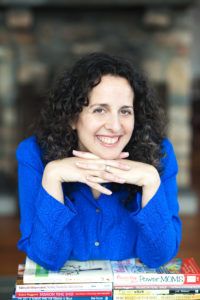 If you were on my Q&A call, then you know the questions were terrific. If you missed any part of it, you can listen here:
If you were on my Q&A call, then you know the questions were terrific. If you missed any part of it, you can listen here:
[Download MP3]
I’ve also answered some book writing and publishing questions below—ones we did not get to on the call.
A few people asked about where to start if they have lots of ideas but don’t know which book to write or where to start. Many people find my Quick Start to Kick Start program the perfect starting place—particularly for a self-help book or how-to book. Read more about Quick Start to Kick Start Your Book.
Still have a question? Ask away—-as a comment at the bottom of the post:
Here are some questions that came in by email last time we offered a Q&A:
- Saletta asked, “For branding purposes (categorically speaking), is it important to stick to one genre? Or is it acceptable to write across multiple genres?” It can be easiest (for branding) to stick to one genre, but it’s not absolutely necessary. I would want to know specifics about the different books and how they fit in with your brand. And then I’d like to connect with your inner knowing for clarity as well. Marketing and branding are important, but we need to listen to our hearts as well.
- Paul asked, “At what time should you start writing a publication proposal? I have written my outline and several chapters.” Paul, it sounds to me like you are ready to start on the book proposal. Some people do use my Bring Your Book to Life program to work on their proposals and I provide supplementary materials who those who do at no extra charge. If you are interested in exploring, you can set up a call to explore with me here.
- Heather asked, “Many ideas excite me, how to choose the right one?” The exercise on clarifying your vision that we touched upon on the call is very helpful. Clarity tends to stem from that. You might also try this free guided visualization “Meet Your Muse” and ask for clarity.
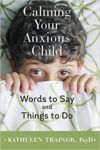
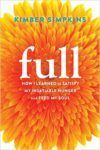

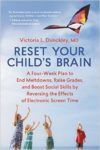
- Lisa asked, “Which is better, self publishing or traditional publishing?” There is no “one-off” answer. Many traditionally published authors are now self-publishing for a variety of reasons: more control, to get the book out faster, to make more money per book. At the same time, traditional publishers often do bring quite a bit to the table. They have know how when it comes to design, understanding your market, making the book even more marketable, distribution, etc. In addition, you’ll get a certain instant credibility and cachet from a traditionally published book. It can sometimes make it easier to get onto national TV or get higher profile speaking gigs, but it is by no means required. It can also help you get into bookstores. So, with every author, I always review their vision, goals, preferences and also what they would need to do to attract publishers (for instance, do they need to grow their reach/platform? Do they need to write to a more specific niche?) and ask if they are willing to do that and interested in doing that? Is it worth it to them? This is a question I explore with every author who joins my Bring Your Book to Life program and I help guide them with the answer that fits best for them.
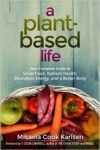
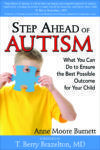


- Irene asked, “I have personal essay chapters to my memoir. How do I put it all together?” Irene, sometimes it just makes sense to have these in the order that they happened so that readers can “grow” along with you. Other times, it feels best to organize by themes. You can try it both ways and see what works best.
- Ursula asked, “How to organize thousands of facts from research?” I tend to have my authors write first from what they know and then add the research in later, leaving holes for research in their first draft. This makes it much faster to write the book and not get caught up with research. This method does not work for every type of book, but it works well for those who know their subject and have specific ideas and/or stories to share. It works well for many self-help and how-to books, in particular. I don’t know if it will work for your book, Ursula. It all depends on the subject, type of book, and your relationship to the material.
- JC asked, “How much do coaches, agents and editors cost? How do you know which of these, if any, you need?” JC, costs for coaches and editors vary tremendously and so does quality. Often the two are linked, but not always. A reputable agent, however, charges only when they sell your book. And their fees tend to be 15% of royalties. I would always recommend an editor before you send query letters and then the proposal. Even experienced authors tend to work with at least one editor before sending their manuscripts off. As to whether to hire a coach or an editor, many writing coaches or publishing coaches are also editors. You may need a coach if you have specific challenges–feeling stuck, needing to get motivated or organized, needing more guidance at the beginning (I don’t think this is your issue since you mentioned in an email that you have a first draft), wanting help building your platform and/or developing a marketing plan, needing guidance to write the proposal. Plus a coach can help if you need a breakthrough! If you want more hand-holding or guidance, a coach is ideal. However, if you just want feedback on the structure of the work, guidance on overall changes and line by line editing, an editor is fine. Either way, for a full book, we are talking in the thousands of dollars for an experienced coach or editor.


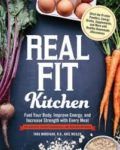 And if you missed our Bring Your Book to Life® in 2018 call, the recording just went up. You can listen here.
And if you missed our Bring Your Book to Life® in 2018 call, the recording just went up. You can listen here.
On the recording, you will get tips to help you get started on your book, find time, save time and write a great book in the process. Plus I answered about half a dozen additional questions on the call.
Have a question about book writing, publishing or my Bring Your Book to Life® program? Ask as a comment below and I will happily answer!



I enjoyed the call last night and I appreciate all the great information in your answers above!! I especially enjoyed learning about the process of reviewing a book proposal by a publishing company. Fascinating to see a bit behind the scenes!
Thanks, Andrea. I so appreciated your technical savvy on the call and was thrilled to learn you also have a book in you!
Hi Lisa,
I’m in the midst of writing my book. I thought I would rather self-publish and have my book sold as an eBook on Kindle for instance.
However, the book I’m writing is based on a kids TV series and what I learned from it. So, the title has the name of the TV Series & of course, the entire book goes around that TV series with scenes & situations from the TV series set as examples. My concern is, should I get permission from the producer the TV series since I am writing a book on it? I believe the TV series is a registered trademark.
Thank you. Hope to hear from you soon.
It sounds like you would need permission. I would recommend consulting with an intellectual property attorney.
I wrote a memoir reflecting a journey to healing which I believe requires far more than 30,000-40,000 words. There are seven parts to the key to unlocking the secret to self. The memoir is personal essay style and all the details lead to the end. How do you know how long your book should be for this type of work?
Thanks in advance!
Hi Emily,
This is a great question! You mentioned in your email to me that an editor suggested. 30,000 – 40,000. That sounds short, even in these days of short. I would say a minimum of 55,000 words and longer is fine. However, if you are a first time author, you may want to limit it to 75,000 or 80,000 words. Longer is generally harder to sell, largely because the longer a book the more money it costs to produce and therefore a publisher puts more money at risk with a longer book. Are there exceptions? Yes, but it can help to increase your odds by staying in this range. Of course, if you are self-publishing, you have more leeway to do whatever you want.
Now, I don’t know why your editor suggested 30,000 – 40,000 words. He or she may have felt that the writing needed extreme tightening. So you might ask the editor why they are suggesting such a short book.
Good luck!
I enjoy reading books about an author’s personal life experience of hardship that results in something gained from the experience. Most books of that sort, however, seem to end with a focus on some kind of material success or status gained. One example would be, enduring hardships leading to homelessness ending with the author struggling through it and later obtaining material success and good standing as a motivational speaker with books and speaking gigs around the world. While those stories are indeed inspirational, what if one’s story has the elements of hardship and struggle leading to insights and breakthroughs but no climactic ending of going from rags to riches? Is the book not worth writing if at the time of writing the author has not reached the zenith of success? Would it be any use to anyone without a climactic success ending?
Heather, this is such a great question. On the contrary, it is often the inner shift that is most cathartic and powerful for readers. So if you experienced insights and breakthroughs, and the accompanying emotions, perhaps of joy or peace or calm, as well as insight, to convey such shifts can be even more effective than just the outer trappings. I encourage you to write your memoir. Some books I recommend are Regina Brooks’ You Should Really Write a Book and Mary Karr’s The Art of Memoir. They may serve as guideposts to help you as you write and edit your work.
Thank you, Lisa, not only from your incredibly prompt reply, but for an answer that confirms what I had hoped to be true. Though so many memoirs end with the author overcoming the odds and becoming successful in the way we tend to measure success, that’s not the part that speaks loudest to me. It has however diminished my own view of my life experience because I haven’t reached any pinnacle of success, and that has held me back, believing that no memoir would be worth reading unless the author had overcome all major challenges and was now “on the other side” of the hurdle. I suppose there is a way to end one’s story in a meaningful way if one is still struggling. I just need to figure out how to do that.